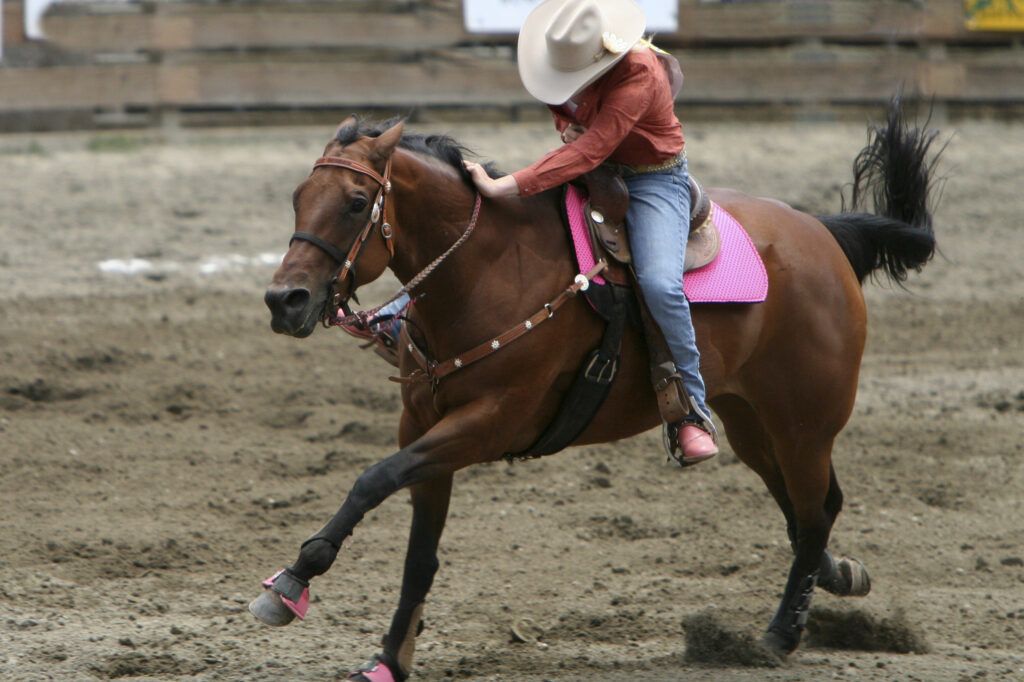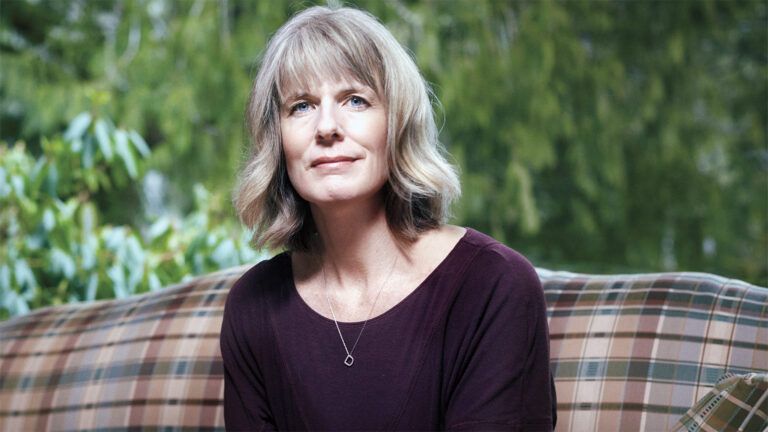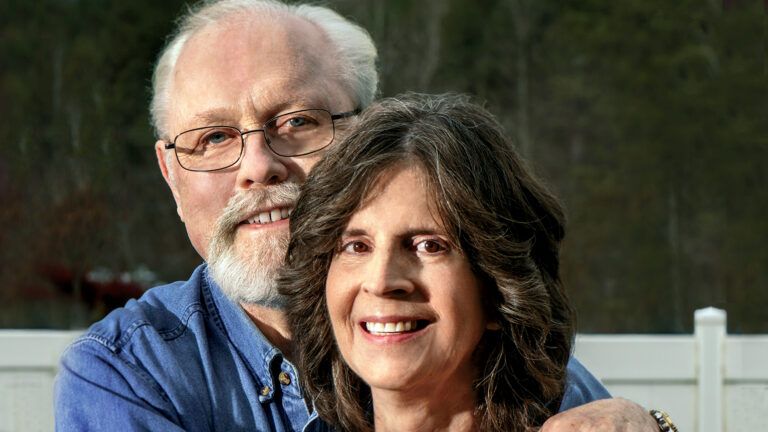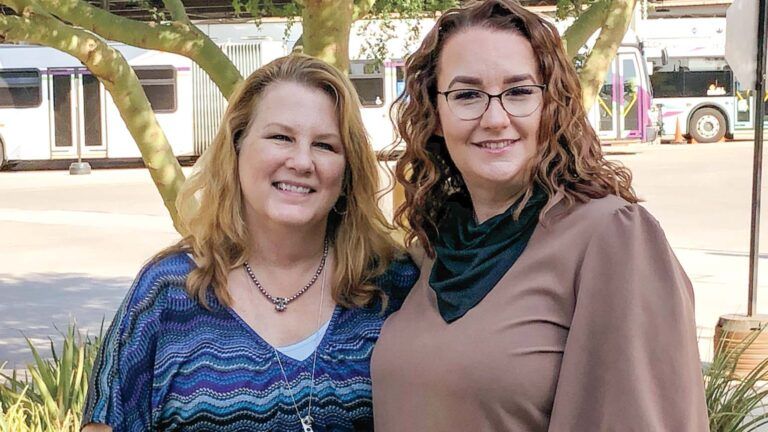This was it. The very last question after eight days of grueling competition. I waited anxiously with the other four finalists—the bright colors of our Western outfits rivaling a Las Vegas sunset, our long curly hair flowing out beneath the stiff brims of our cowboy hats.
I’d been preparing for this pageant for the last two years, studying every kind of horse and boning up on rodeo knowledge while attending performances all around my home state of North Dakota, riding any horse I could find to improve my horsemanship skills.
Now, the answer to a single question would determine if I’d be crowned Miss Rodeo America 2007.
A hush fell over the crowd as the emcee lifted his microphone. “What,” he asked, looking directly at us, “is the biggest challenge you faced during your year to become Miss Rodeo America?”
How could he pick that question? My eyes flew to my family and friends, 50 strong, cheering madly in the showroom of the Orleans Hotel in Vegas. They had been my support and strength. The only ones who knew that the hair under my hat wasn’t even real.
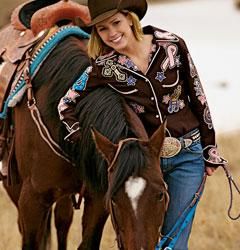
It was only when I won that first contest and went on to the national high school competition that I discovered how much work it was. First of all, queens don’t get to ride their own horses. That’s why we have trouble in the saddle. You might just get stuck with the toughest horse the stock contractors have, and you have to be cowgirl enough to ride it.
Find out more about one of Guideposts.org’s sponsors: Cancer Treatment Centers of America
In college, I’d decided to try for the Miss Rodeo America title. My first official appearance after winning the North Dakota state crown was attending the National Stock Show in Denver in January 2006. During the three-week run, I was tired all the time, and lost a lot of weight, down almost three pant sizes. I knew that something had to be wrong. Really wrong.
The first night I was back in Bismarck I woke up with a terrible pain in my chest, so bad it felt like someone was stabbing me. I couldn’t even sit up in bed. Early the next morning I went to the walk-in clinic. A doctor did an X ray, and it seemed like it took forever for him to come back to the room. He looked at me gravely. “I want you to have a CT scan in the morning,” he said. “And your parents should be here.”
I called them and they came over from Bowman to be with me while I went through a battery of tests. At the end we all sat in a doctor’s office and I listened in a daze. “You have Hodgkin’s lymphoma,” he said. “Cancer of the lymph nodes.”
I grew up on a ranch, where hard knocks are something you get used to—whether lightning strikes a cow or a big hailstorm comes through and wipes out your entire crop. But this news hit me right in the stomach. I was only 21 years old! Too young to be diagnosed with cancer. Right then and there I broke down and cried. All of my hopes and dreams rose up before me—and vanished.
“Hodgkin’s is one of the most treatable forms of cancer,” the doctor reassured me. “But you’ll need to have six months of chemotherapy.” I nodded my head, trying to take it all in.
“Everybody will be praying for you back home,” Mom said, holding my hand.
Sure, I was glad for their prayers—I could use all the help I could get—but I really just wanted things to go back to normal again.
Each week I made out a list of what I had to do—horseback riding, modeling practice, dance, work on my speeches. I had chemo every other Tuesday. On Thursdays the nausea would set in. Then I’d take the day off and lie on the couch, watching TV and sleeping. By the weekend I felt strong enough to go to one of my Miss Rodeo North Dakota appearances. I could sit tall in the saddle and wave to the crowd. You’ll be okay, cowgirl, I told myself. I could fight this.
But the treatments started taking more and more out of me. Instead of resting for one day after chemotherapy, I had to take two or three days off. My hair started falling out too, long curly strands on my pillow when I woke up in the morning. In the shower my hair would clog the drain.
Hair is so important to a rodeo queen. Big, fluffy, full hair that can fly in a breeze. I’d prepared myself for that day by buying three wigs: Brittany, Brandi and Bridgette. But I left them on their little stands. I didn’t want to wear them. That would be like giving in.
One morning, though, I was taking my hair out of its ponytail and it just stayed in its clump. I stepped in the shower. As soon as I tried to shampoo my hair it fell to the tiles, blocking the drain. I jumped out in frustration, dried off and picked up that clump. I wanted to throw it across the room. It would be like getting rid of the cancer itself. Then I looked in the mirror. I didn’t even recognize myself. I dashed downstairs and picked up Brittany off her stand.
“Okay, girl, get to work,” I said, brushing back the golden curls. I pulled the elastic cap over my bald head and put a hat on top of my new hair.
I wore those wigs as much as I had to. They made me feel a little more like myself. But they still couldn’t get me through the roughest patches.
There were days when I went out to my horses and wasn’t strong enough to go for a ride. I would just turn them out and watch them graze. Teedo, my little three-year-old colt, usually trotted off toward the open field. Not now. He seemed to sense that I was feeling really bad.
One summer day I leaned against the fence, my Rodeo Queen dreams far away. I didn’t feel like an upbeat, unbeatable cowgirl anymore. I was weak, too weak to even pray.
“Oh, Teedo,” I whispered as he came up and laid his head on my shoulder, snuffling along my neck with his warm breath. “Am I crazy to try to do this? Should I just give up and let go?”
I leaned into his strong neck and wrapped my arms around it. He stood as still as could be, as if he knew I was too weak to move fast. The wind gently lifted his mane and blew it across my face under the warm North Dakota sun. I buried my nose in his horsey smell, feeling his skin twitch when a fly hit his belly. I remembered what it was like to be riding him, carried swiftly along by his strength. Now I could only lean against his mane. God seemed so far away. Lord, where are you when I need you most? I thought.
Teedo nudged me again, and it was as though God were coming to me at my weakest and speaking to me: I’m here with you. I’m never far away. Don’t give up. I didn’t hear the words as much as feel them flow through me. I thought of all those people who had sent notes and cards and e-mails to me, telling me that they were praying for me, and I felt hope surge through me again. Hope when times are hardest—the heritage of any rancher’s daughter. The crops could fail, droughts could come and go, but God would always be fully present.
All of this went through my head as I stepped up to that microphone in Las Vegas. How could I tell the judges, and the crowd, that just to be standing here on this stage was a miracle? That I had started out the year thinking that I was going to tell people about the wonderful sport of rodeo, and ended it by telling them about hope and hanging on despite it all instead?
The chemotherapy treatments were finally done and at my last check-up the doctor said that the cancer was gone. I knew that I had already fought and won the biggest battle I would ever face in my life.
Even if the flowing hair under my hat wasn’t real, I knew now it was all right. What was real was my battle with cancer, and that is what I told them.
Later, when it was all over, one of the judges placed the Miss Rodeo America crown gently on my head. It felt pretty good, fake curls and all.
